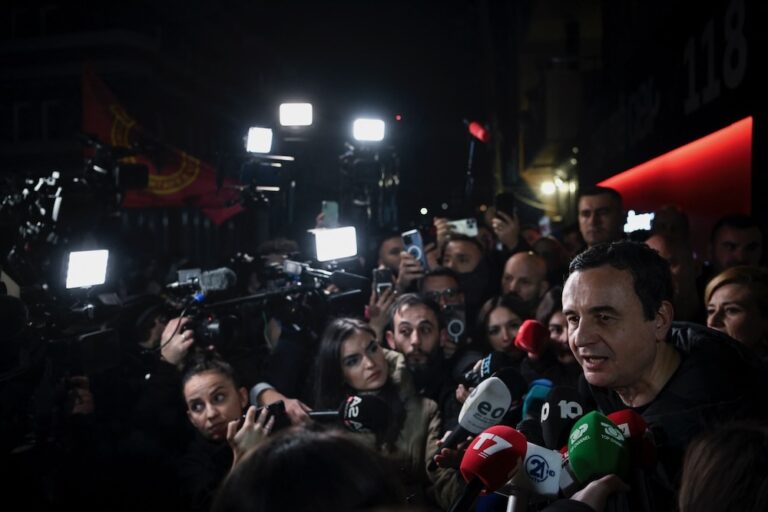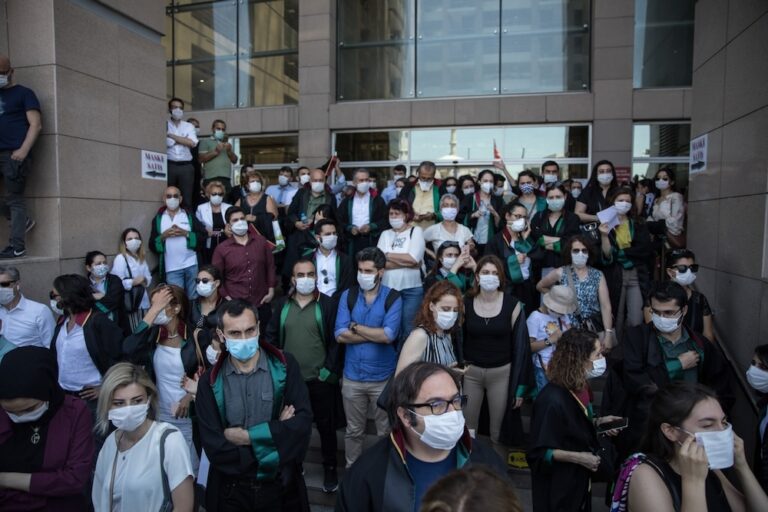In a controversial article, writer Yilmaz Ozdil had commented on an attack against a Kurdish politician.
(BIANET/IFEX) – A controversial article by writer Yilmaz Ozdil was within the “limits of press freedom”, the Diyarbakir Public Prosecution has decided. In the 14 April 2010 article, which was published in “Hürriyet” newspaper, Ozdil had defended a physical attack on Kurdish politician Ahmet Türk. The Press Council had previously reached a similar conclusion regarding Ozdil’s column.
On 12 April, Türk, the co-chair of the defunct pro-Kurdish Democratic Society Party (DTP), was punched in the face and had his nose broken as he was leaving a court hearing in Samsun (Black Sea Coast). The hearing was related to the killing of two people and the wounding of four others in the city of Mus/Bulanik, southeastern Turkey.
Ozdil commented on the incident in a 14 April column entitled “The Fist”. He said, “The punch was put in the place of the ‘hammer of justice’. The person who punched Ahmet Türk on his nose became the interpreter of the feelings of many people in this country. (. . . ) Because the nonsense of the ‘opening’ process that legitimated terrorism is not a one-sided issue. On the other hand it initiated the creation of ‘bandit heroes’.”
On 15 April, one day after Ozdil’s column was published in the nationwide daily, 36 lawyers of the Diyarbakir Bar Association filed a criminal complaint against the journalist.
Upon completing its investigation, the Chief Prosecution decreed against a prosecution of Ozdil. The prosecution ruled that the article was to be seen in the scope of the freedom to criticize and the right to freedom of thought.
The prosecution stated, “. . . it was clearly understood that Ozdil had no conscious intention of ‘praising a crime and a criminal’ or ‘inciting the public to hatred and hostility related to ethnic origins’. It was further understood that he compared certain events and communicated them to the public with the intention of emphasizing conflicts experienced in this country and different implementations. The action remained within the right to voice a personal opinion as it is a journalist’s duty and within the scope of the freedom to criticize”.
Similarly, the Press Council did not see any reasons for a complaint and deemed the writing was within the limits of freedom of expression”.


